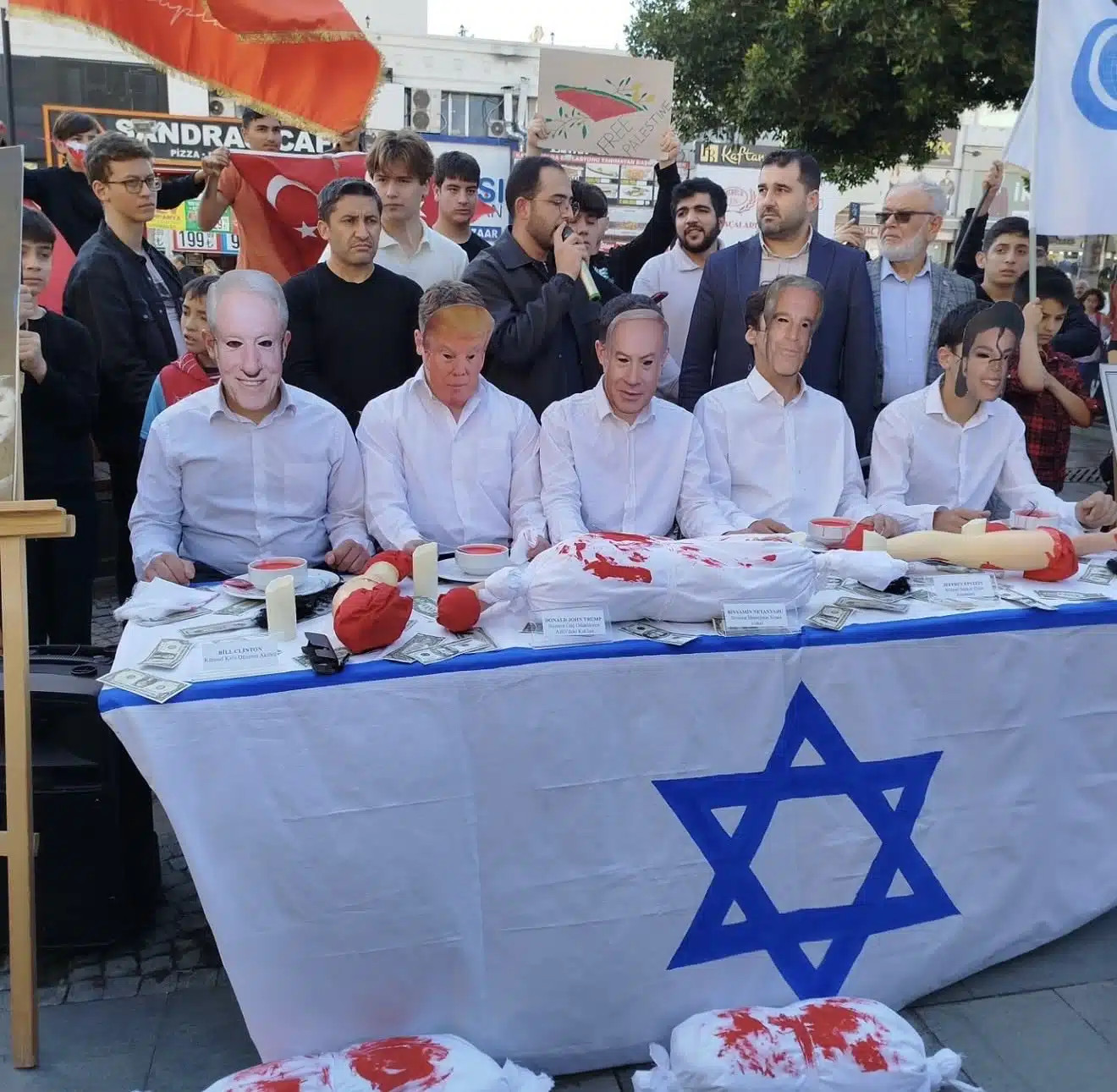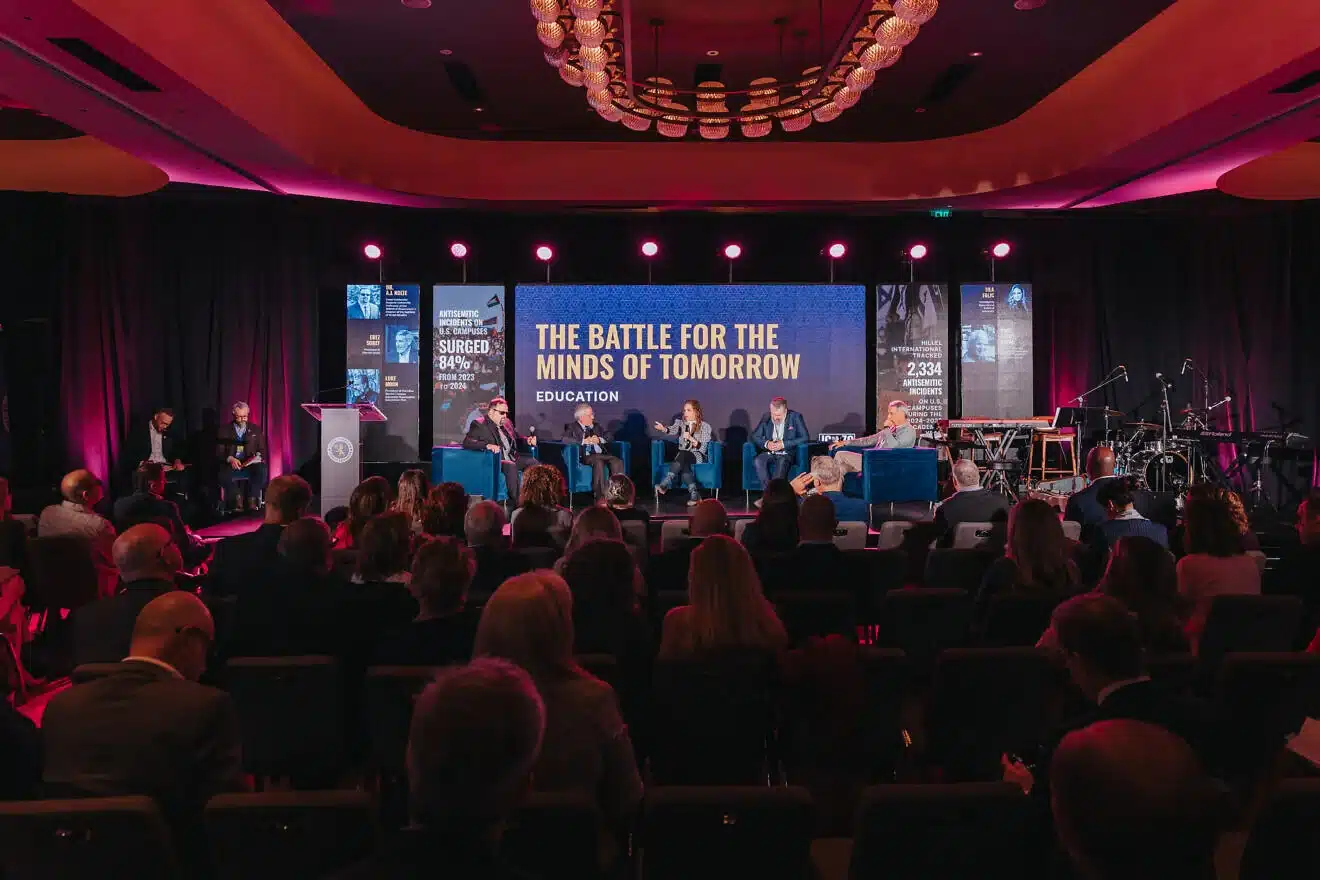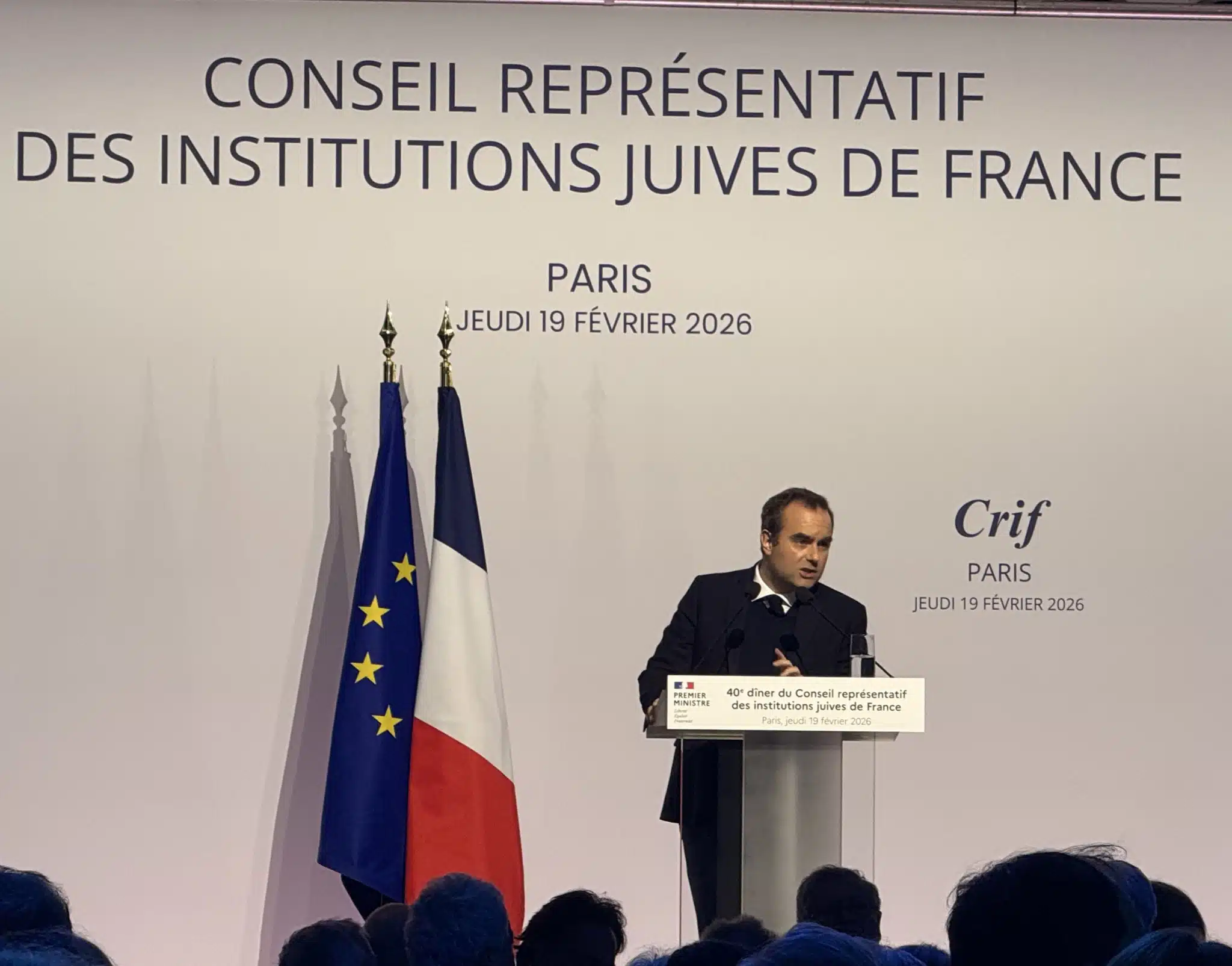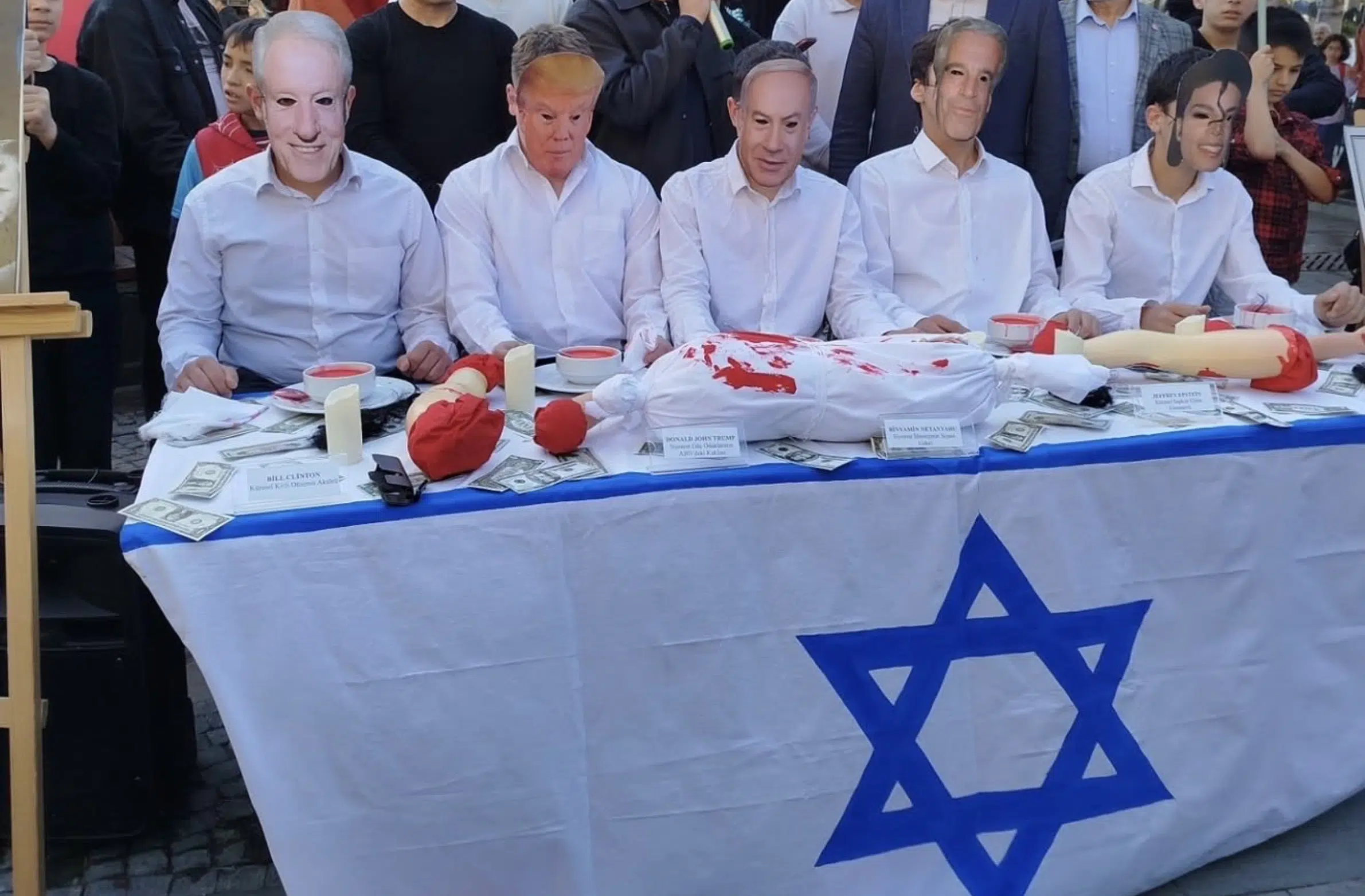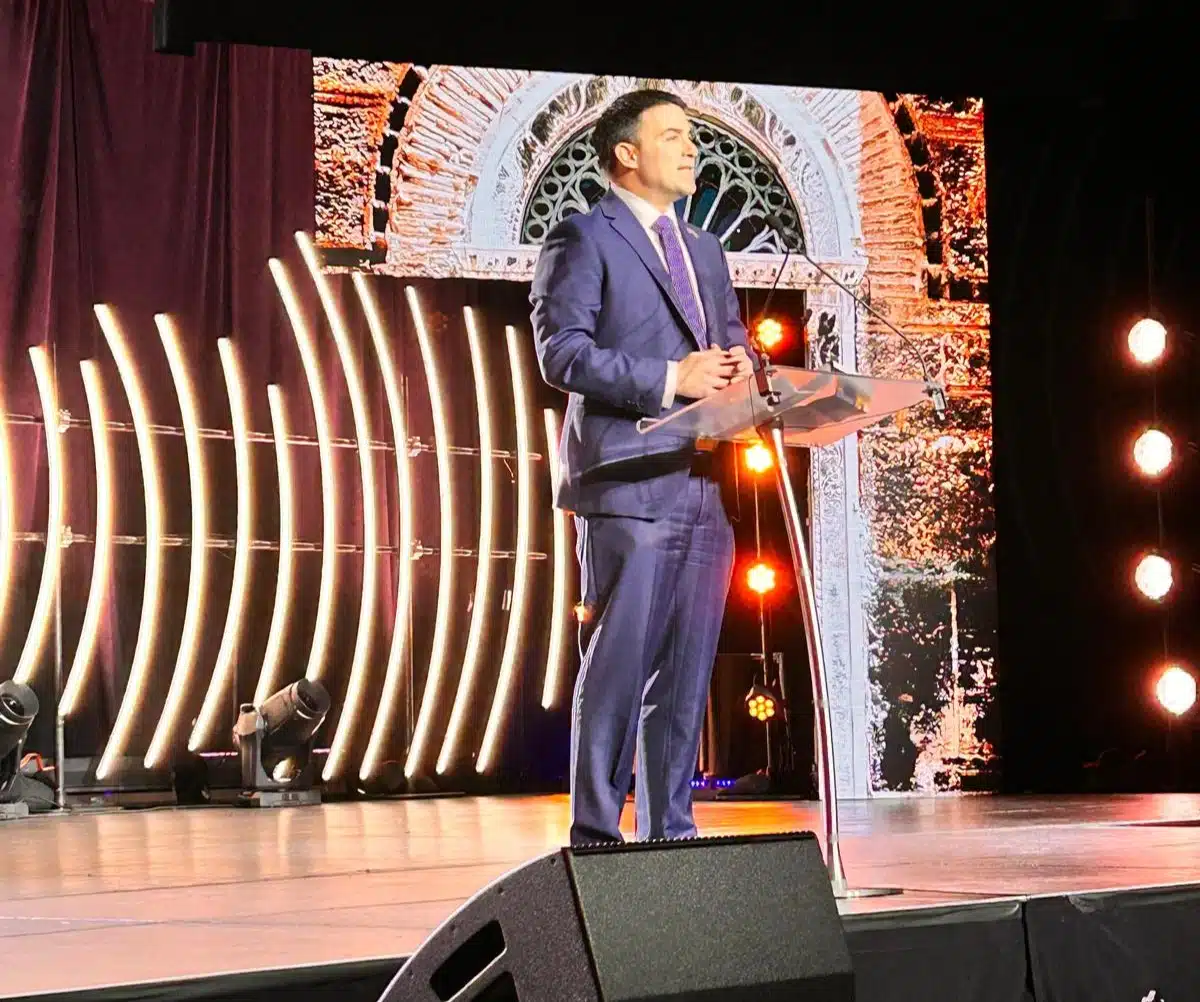
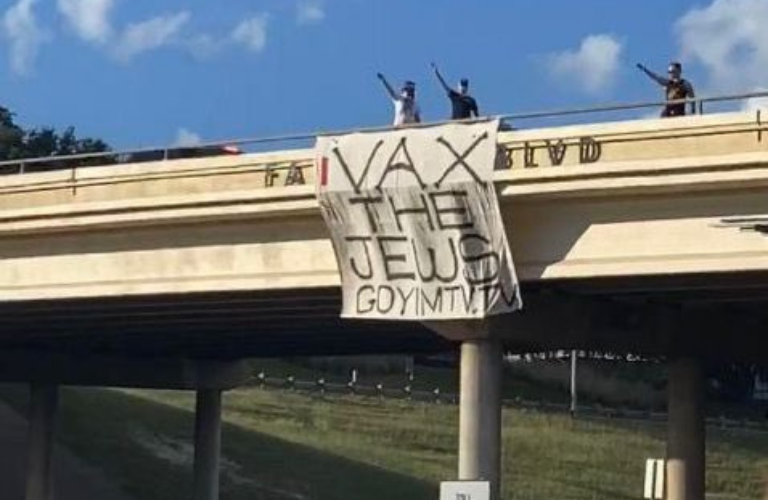
Series of High-Profile Antisemitic Incidents Sweep Across Southwestern United States
Recent weeks have seen a troubling string of high-profile antisemitic incidents across the southwestern United States, largely in Texas and Arizona.
This regional trend has been monitored by the Combat Antisemitism Movement (CAM) Information Hub as part of its mission of tracking contemporary manifestations of Jew-hatred worldwide.
The epicenter of this antisemitic outburst was in Austin, the state capital of Texas. In mid-October, antisemitic slogans and symbols were spray-painted in the city at an Anderson High School student parking lot.
A short time later, antisemitic banners, including one with the words “Vax the Jews” written on it, were hung on a highway overpass twice in the span of several days.
These developments culminated on Oct. 31, when an Austin synagogue, Congregation Beth Israel, was set on fire by a suspected arsonist. Franklin Barrett Sechriest, 18, was arrested on Nov. 10 and charged with first-degree felony arson.
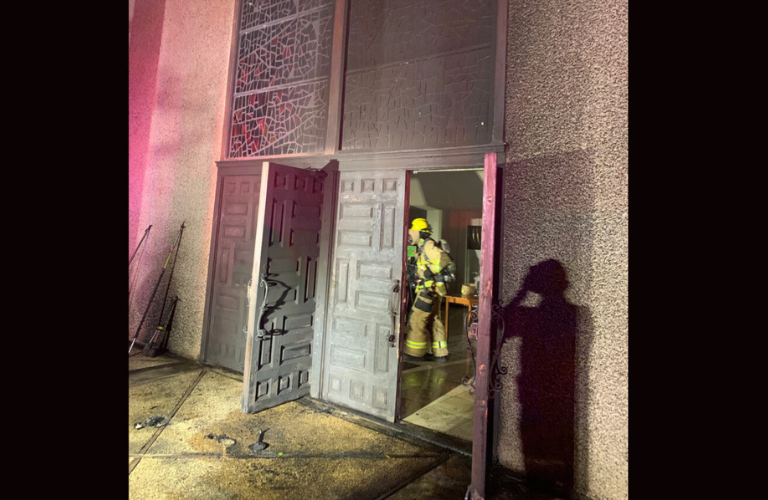
On Nov. 9, antisemitic and racist fliers and stickers were found in Austin’s Ramsey Park.
Following the incidents, the Austin City Council passed a resolution condemning antisemitism, racism, and hate. “It is critical that as a city we join in a united front against hate and make clear that these acts do not represent our community values,” Austin City Council Member Alison Alter, the sponsor of the resolution, said.
A solidarity rally was also held by a coalition of interfaith leaders and local politicians at Austin’s Jewish Community Center.
Around the same time, near Austin, in adjacent Hays County, copies of a letter featuring antisemitic rhetoric were left outside homes. “Every single aspect of the COVID agenda is Jewish,” the letter stated.

Elsewhere in Texas, in San Antonio, antisemitic fliers were distributed in the city’s Northside community, a neo-Nazi group demonstrated outside the city’s Jewish Community Center, and a “Heil Hitler” banner adorned with a swastika was placed at the entrance of automotive repair shop.
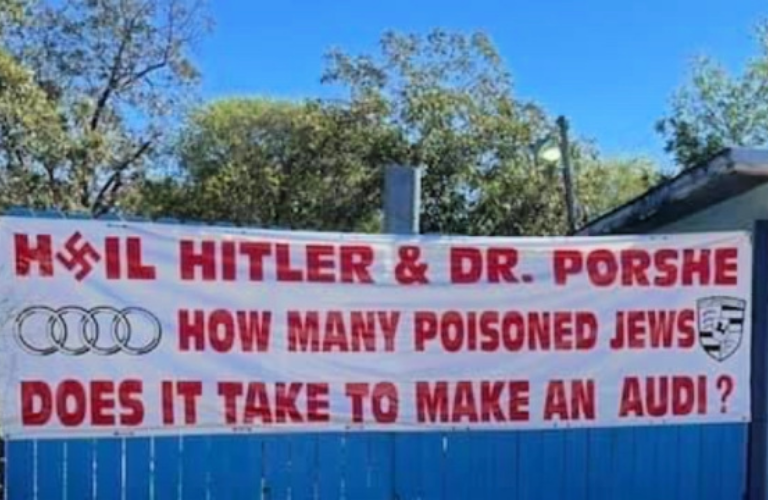
Earlier this year, Texas Governor Greg Abbott signed a law establishing the Texas Holocaust, Genocide, and Antisemitism Advisory Commission, and the state also adopted the International Holocaust Remembrance Alliance (IHRA) working definition of antisemitism.
Addressing the Central America Forum for Israel in July, Governor Abbott said, “With the disturbing rise in antisemitism, we all have a responsibility to combat hateful rhetoric and violence in our communities.”
Jew-hatred also reared its ugly head this past month in Arizona, with a bigoted tirade at a school board meeting in suburban Phoenix and fliers promoting antisemitic conspiracy theories posted at Arizona State University in Tempe.
While Arizona has not yet adopted the IHRA’s antisemitism definition, Governor Doug Ducey did sign a law this summer mandating Holocaust education in the state’s K-12 public schools.
Meanwhile, in Salt Lake City, Utah, a swastika made of syringes was displayed at a protest against Covid-19 vaccines in early October. In neighboring Colorado, antisemitic graffiti was scrawled at two Denver-area high schools later in the month.
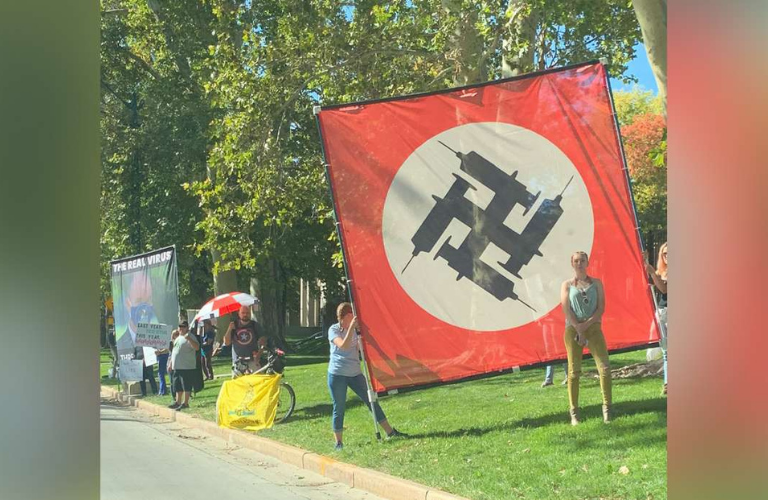
While antisemitism on the East and West Coasts of the United States has often drawn media attention in the past few years, the appearance of this age-old societal scourge in the southwestern region of the country merits closer scrutiny.
Among other things, this series of incidents highlighted the danger of Holocaust-trivialization rhetoric that has become characteristic of the protest movement against Covid-19 pandemic-related health measures.
The CAM Information Hub will continue tracking this phenomenon closely to raise awareness of the issue and educate policymakers who can take action to combat hatred at the state and local levels.
CAM’s weekly monitoring of antisemitism incidents data can be followed at: combatantisemitism.org/newsletters

